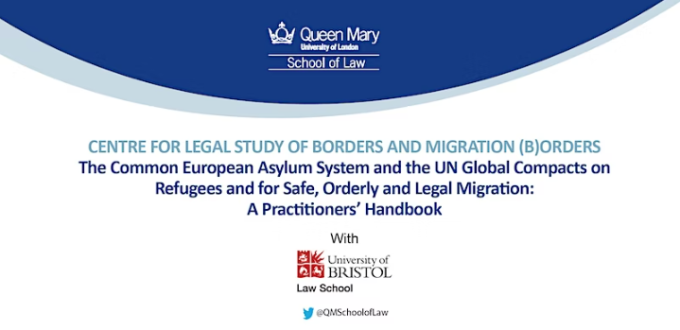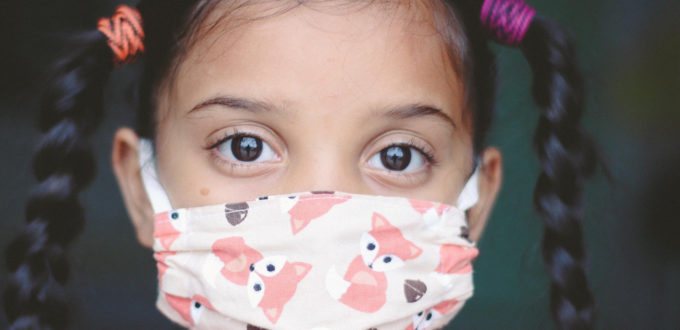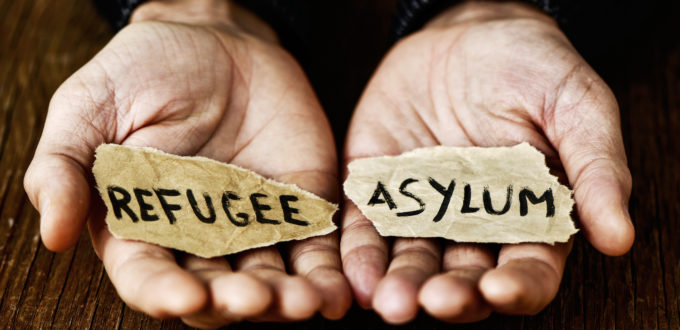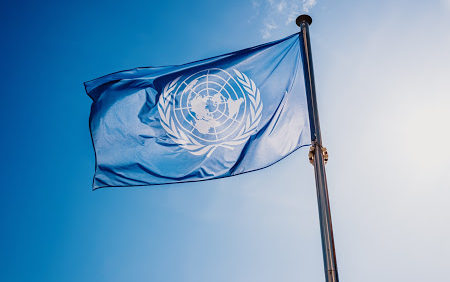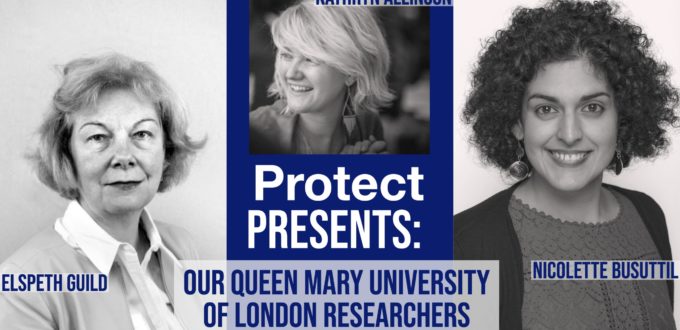This Practitioners’ Handbook on the Common European Asylum System (CEAS) and EU and Member States’ Commitments under the UN Global Compact on Refugees and the UN Global Compact for Safe, Orderly and Regular Migration identifies CEAS provisions which fulfil the Compacts’ requirements as well as those that diverge therefrom. Through this exercise, the Handbook highlights […]
The Common European Asylum System and the UN Global Compact for Safe, Orderly and Regular Migration
When: Tuesday, 27th September 2022, 17:00 – 19.00 hrs Where: Room 3.1, Lincoln’s Inn Fields, Centre for Commercial Law Studies, Queen Mary University of London or online (register here) The (B)OrderS: Centre for the Legal Study of Borders and Migration at Queen Mary University of London (QMUL) and the Centre for International Law at the University of Bristol invite you to […]
12 months and counting: 8 severe consequences of Covid-19 for refugees, migrants, and asylum seekers
The ongoing pandemic has had devastating consequences for people, communities, and economies all over the world. Throughout 2020, PROTECT researchers have paid particular attention to how the pandemic has affected people on the move in different countries and continents. We have summarized our main concerns.
A Greek Tragedy in Moria: Asylum Seekers without Durable Solutions
Since the terrible fire at the Moria asylum unit on the Greek island of Lesvos on 8 September the world has been horrified not only by the scale of the disaster but the inadequacy of the response at the local, national, European, and international level. While asylum seekers, with no-where to go, sleep on the […]
PROTECT Expert Forum 13-14 November 2020
Forum title: The Two UN Compacts – Refugees and Migrants: Challenges and Implementation in Europes When: 13-14 November 2020 Where: Online Hosts: Queen Mary University of London Background In 2019 the UN concluded two years of stocktaking and negotiations by adopting the Marrakesh Compact for Safe, Orderly and Regular Migration (The Marrakesh Compact). The Compact […]
What now for the 1951 Convention?
From our perspective, the most important development which the Global Compact on Refugees constitutes as regards the 1951 Convention is the alignment of refugee rights with human rights. The GCR commitments link together refugee protection and human rights in a UN instrument which, while not legally binding, sets out the common will of the international community.
PROTECT partner presentations: The Queen Mary University of London
The Queen Mary University of London is one of PROTECT’s two UK-based teams. The team is led by the distinguished EU law and migration expert Elspeth Guild, joining her are the aspiring law scholar Kathryn Allinson and Nicolette Busuttil. Together, the team has followed the processes surrounding the UN Compacts on Migrants and Refugees closely and explored their potential in advancing the international protection system.
Detention of refugees, asylum seekers and migrants under Corona lockdown risks becoming arbitrary
As the Covid-19 pandemic has tightened its grip on many western states, many refugees, asylum seekers, and migrants continue to be detained in reception and detention centres, without any prospect of release. With asylum processing at a standstill and returns to countries of origin on hold, detention of these individuals risks becoming arbitrary, if not inhumane.
As the Corona pandemic worsens, EU borders shut down: “A new low point for the EU’s respect for refu
Human rights in international law and the EU Charter are not dispensable in times of pandemics. They are essential characteristics and integral to promoting the European Way of Life which “is founded on the values of the respect for human dignity, freedom, democracy, equality, the rule of law and respect for the human rights, including the rights of persons belonging to minorities.”


